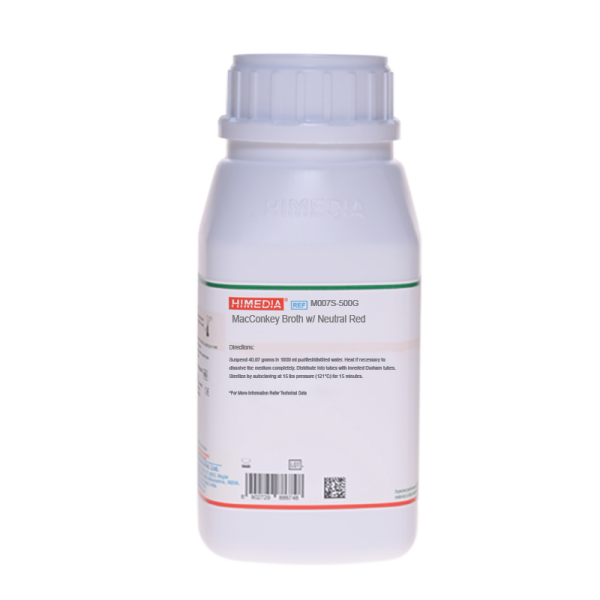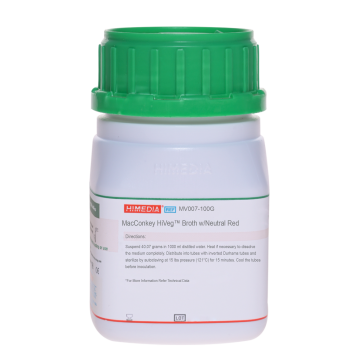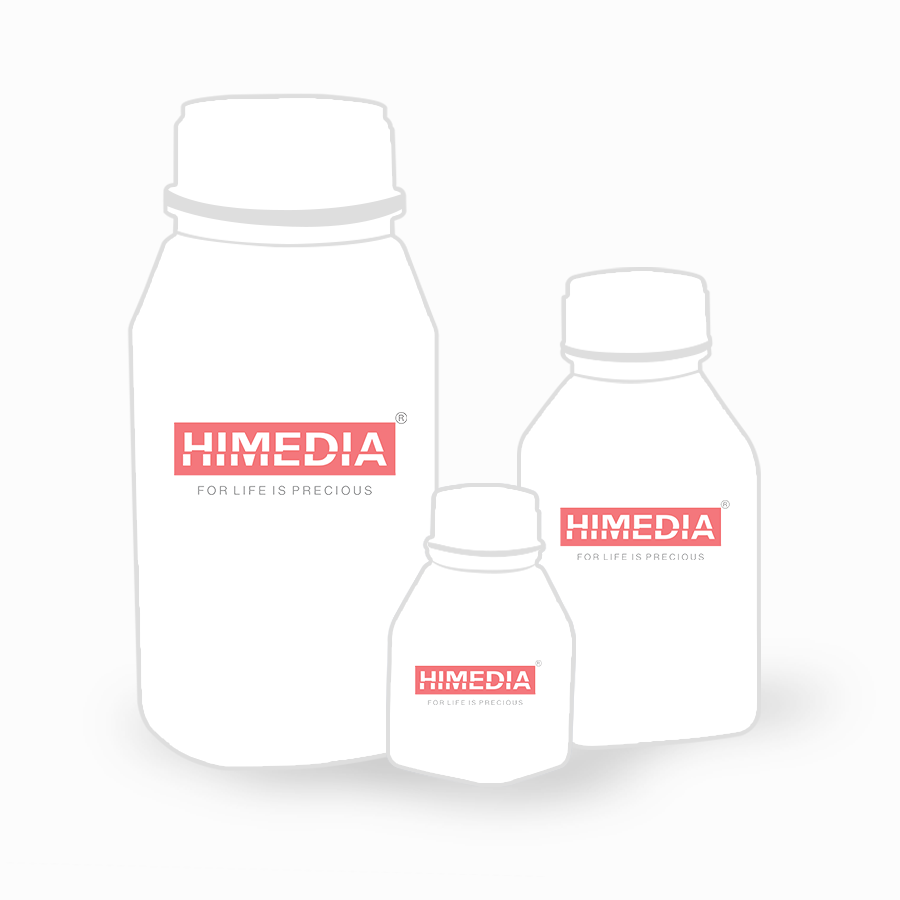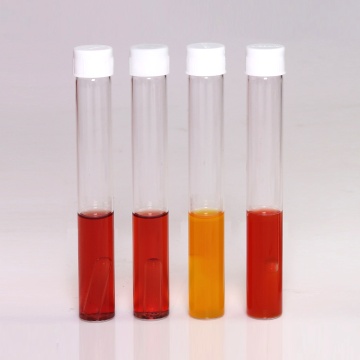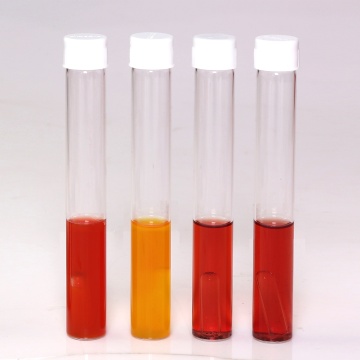 Your enquiry has been submitted
Your enquiry has been submitted
MacConkey Broth w/ Neutral Red
MacConkey Broth w/ Neutral Red is used for selective enrichment and enumeration of coliforms.
Composition
| Ingredients | Gms/Litre |
|---|---|
| Peptic digest of animal tissue | 20.000 |
| Lactose | 10.000 |
| Bile salts | 5.000 |
| Sodium chloride | 5.000 |
| Neutral red | 0.070 |
Final pH (at 25°C): 7.5±0.2
Formula adjusted, standardized to suit performance parameters
Directions
Suspend 40.07 grams in 1000 ml distilled water. Heat if necessary to dissolve the medium completely. Distribute into test tubes with inverted Durham tubes and sterilize by autoclaving at 15 lbs pressure (121°C) for 15 minutes. Cool the tubes before inoculation.
Principle And Interpretation
MacConkey Broth is the earliest selective and differential medium for cultivation of enteric microorganisms from a variety of clinical specimens (4,5). Subsequently MacConkey Broth have been recommended for use in microbiological examination of foodstuffs (6) and for direct inoculation of water samples for coliform counts (7). This medium is also accepted by the Standard Methods for the Examination of Milk and Dairy Products (8) and pharmaceutical preparations (9).
MacConkey Broth w/ Neutral Red is recommended by BIS under the specification IS:5887 (Part I) 1976 for Detection of Bacteria responsible for food poisoning Part I: for Isolation, Identification and Enumeration of Escherichia coli. This culture media is considered as a standard medium for the primary isolation as well as presumptive identification of coliaerogenes group in food and water which contains neutral red as an indicator (1-3).
Bile salt inhibits most species of gram positive bacteria. Gram-negative bacteria usually grow well on the medium and are differentiated by their ability to ferment lactose. Lactose fermenting strains grow as red. The red colour is due to production of acid from lactose, absorption of neutral red and a subsequent colour change of the dye when the pH of medium falls below 6.8. Lactose non-fermenting strains, such as Shigella and Salmonella are colourless and typically do not alter appearance of the medium.
Quality Control
Appearance: Pale yellow to pink coloured homogeneous free flowing powder
Colour and Clarity of prepared medium: Red clear solution without any precipitate
Reaction: Reaction of 4.0% w/v aqueous solution at 25°C. pH: 7.5±0.2
pH: 7.30-7.70
Cultural Response
Cultural characteristics observed after an incubation at 35-37°C for 18-24 hours.
| Organism | Inoculum (CFU) | Growth | Acid | Gas |
|---|---|---|---|---|
| Enterobacter aerogenes ATCC 13048 | 50-100 | luxuriant | positive reaction | positive reaction |
| Escherichia coli ATCC 25922 | 50-100 | luxuriant | positive reaction | positive reaction |
| Salmonella Choleraesuis ATCC 12011 | 50-100 | fair to good | negative reaction | negative reaction |
| Staphylococcus aureus ATCC 25923 | >=103 | inhibited | - | - |
Storage and Shelf Life
Store below 30°C in tightly closed container and the prepared medium at 2-8°C. Use before expiry date on the label.
Reference
- Bureau of Indian Standards IS: 5401 - 1969.
- Bureau of Indian Standards IS: 5887 (Part I) - 1976, reaffirm 1986.
- Bureau of Indian Standards IS: 5887 (Part II) - 1976, reaffirm 1986.
- MacConkey, 1900, The Lancet, ii:20.
- MacConkey, 1905, J. Hyg., 5:333.
- Speck M. (Ed.), 1985, Compendium of Methods for the Microbiological Examination of Foods, 2nd ed., APHA, Washington, D.C.
- Greenberg A. E., Clesceri L. S. and Eaton A. D., (Eds.), 1992, Standard Methods for the Examination of Water and Wastewater, 18th ed., APHA, Washington, D.C.
- Marshall R. (Ed.), 1992, Standard Methods For the Examination of Dairy Products, 16th ed., APHA, Washington, D.C.
- The United States Pharmacopoeia XXI and the National Formulary, 16th ed., 1985, United States Pharmacopeial Convention, Inc., Washington, D.C.
| Product Name | MacConkey Broth w/ Neutral Red |
|---|---|
| SKU | M007S |
| Product Type | Regular |
| Physical Form | Powder |
| Origin | Animal |
| Packaging type | HDPE |
| References | 1.MacConkey A. T., 1900, The Lancet, ii: 20. 2.MacConkey A. T., 1905, J. Hyg. 5: 333. 3.American Public Health Association, Standard Methods for the Examination of Dairy Products, 1978, 14th Ed., WashingtonD.C. 4.Salfinger Y., and Tortorello M.L. Fifth (Ed.), 2015, Compendium of Methods for the Microbiological Examination ofFoods, 5th Ed., American Public Health Association, Washington, D.C. 5.Baird R.B., Eaton A.D., and Rice E.W., (Eds.), 2015, Standard Methods for the Examination of Water andWastewater, 23rd ed., APHA, Washington, D.C. 6.Isenberg, H.D. Clinical Microbiology Procedures Handbook. 2nd Edition. 7.Jorgensen,J.H., Pfaller , M.A., Carroll, K.C., Funke, G., Landry, M.L., Richter, S.S and Warnock., D.W. (2015)Manual of Clinical Microbiology, 11th Edition. Vol. 1. 8.Wehr H. M. and Frank J. H., 2004, Standard Methods for the Microbiological Examination of Dairy Products, 17th Ed.,APHA Inc., Washington, D.C. |



